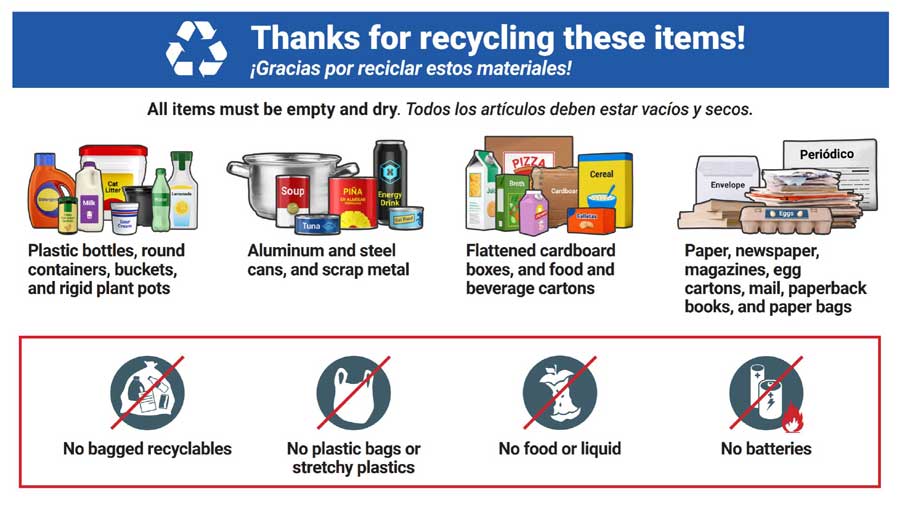A stroke of luck: Medford teen survivor defies odds after medical emergency
Published 4:00 pm Thursday, February 22, 2024

- Kasey Poe, 15, of Medford, talks with media at Providence Medford Medical Center about what it was like to suffer a stroke. Poe has made a full recovery from his stroke caused by a previously undiagnosed hereditary condition, although he will need to undergo regular checkups to prevent future strokes.
If it weren’t for the rapid efforts of his family and his hospital, a Medford teen’s rare-for-his-age brain stroke could have changed the way he lived his life.
Instead, 15-year-old Kasey Poe has seemingly made a full recovery.
During a Saturday interview at Providence Medford Medical Center, the Crater High School sophomore was using both hands to recreate the way his face drooped the night of Dec. 28 when he collapsed due to a stroke caused by a previously undiagnosed hereditary condition.
It was around 10 p.m., Poe remembers. He and his older sister, Harrisen Poe, were laughing about a burp when, without notice, “everything was not OK.”
“I thought I was still laughing,” Kasey Poe said of the moment he collapsed.
He couldn’t talk. He couldn’t move half his body. His sister called over their parents, Jason and Jenny Poe.
Kasey was admitted to Providence Medford Medical Center 10 minutes later, but for Jason and Jenny, those minutes dragged on. Because the Poes live down the street from the hospital, they opted not to wait for an ambulance.
“We muscled him into the car with all the strength that we had,” Jason Poe said. “It was the quickest, longest ride to the hospital.”
Jason remembers running into the hospital, telling the emergency room, “My son needs help!” Moments later he hit the sliding glass hospital doors bringing out a wheelchair.
“I knocked the door off its tracks, I was in such a panic,” Jason said.
Nursing staff checked out Kasey in the car, asked him to smile, and sprang into action.
“There were already, like, seven, eight people ready to go,” Jason said.
“Everything else was game on,” Jenny said.
Emergency doctor Casey Wilson said strokes are triaged as a priority, especially when they involve a young person. He described a stoke case at Poe’s age as something an ER doctor may see once in a career.
“It’s not common, that’s for sure,” Dr. Wilson said.
He praised the family for getting Kasey Poe to the hospital so quickly, as well as the quick work of Providence physician assistant Aaron David for arranging the right imaging scans within minutes — specifically a CT scan and a CT angiogram. The images were ready within 13 minutes of Poe being admitted to the hospital.
Dr. Wilson, meanwhile, reached out to pediatric neurologists at Oregon Health & Science University Hospital in Portland and sent the images to OHSU as soon as they were available. Together, the medical team confirmed Poe was having a stroke and found a clot in Poe’s brain as the source.
Doctors recommended giving Poe an anti-clotting agent to free up what was blocking blood flow in Poe’s brain. It carried a risk, however, that the medication would increase the bleeding in Poe’s brain because the medication could prevent it from coagulating. In short, an adverse reaction risked amplifying Poe’s paralysis.
Further, the Medford hospital did not have the pediatric version of the anti-clotting medication, only the adult dose. It was up to the Poe family to decide whether to administer the medication off-label.
“It takes a while to grapple,” Dr. Wilson said. “We talked a good 15 minutes just assessing the risks and benefits.”
Hollywood medical dramas typically portray doctors making the tough ethical decisions in complex cases, but “really it’s the family,” Dr. Wilson said.
The Poes described the decision as a difficult one. At one point, Jenny said she had to leave the room. Jason said he asked the team of doctors what they would do if it was was their son.
“They all answered without pause,” Jason said. It gave him the confidence to give the green light.
OHSU doctors monitored Poe using what’s known as a “stroke robot,” a telemedicine device with advanced, remote operated cameras that off-site doctors can use to check on the patient, up to and including zooming in on a patient’s pupils.
Kasey Poe said he started feeling paralyzed portions of his body start to come back online within about 20 minutes.
“An hour after I got to the hospital, I had my face back,” Kasey Poe said.
The recovery showed promise, but the anti-clotting medication required that he be monitored for 24 hours in an intensive care unit. He was flown to OHSU Hospital’s pediatric ICU. Jenny rode with her son in the air ambulance to Portland, while Jason and Harrisen made the five-hour drive overnight to Portland.
The Poes did not know it at the time, but according to stroke neurologist Dr. Pawani Sachar, the family had brought their son to the Rogue Valley’s only certified primary stroke center certified by The Joint Commission, a healthcare accrediting body.
“It’s a big deal,” Sachar said.
Behind the certification are resources such as a stroke specialist available 24/7, and a “Code Stroke” system that prioritizes care for stroke patients upon arrival. At any given moment the hospital is treating between eight and 10 stroke patients.
Time is of the essence when it comes to strokes, Sachar said. She encourages people to use the acronym F.A.S.T. to spot signs of a stroke: Face drooping, Arm weakness, Speech difficulty and Time to call 911. (For more info, see the American Stroke Association website at stroke.org.)
“Every minute you lose two million neurons,” Sachar said. “Our systems of care worked beautifully and had a great outcome.”
She added: “I am very proud of my team. It’s 10 different departments coming together.”
Doctors at OHSU ultimately determined that the root of Kasey Poe’s stroke were clots stemming from a blood disorder known as hereditary hemorrhagic telangiectasia, or HHT. Earlier this month, Poe had a noninvasive surgery that cordoned off three more clots in his bloodstream at risk of flowing to his brain and causing another stroke. A fourth clot developing in his lungs is being monitored.
“We’ve been up to Portland a few times,” Jenny Poe said.
Jenny said that members of her extended family are now making appointments for scans to find similar clots in their bloodstreams. She had heard anecdotes in passing about her father having a blood disorder, but rarely considered it beyond how her son would similarly get frequent nosebleeds or couldn’t play sports because he would easily run out of breath.
“He’s lucky,” Jenny said. “It might be a big blessing for the family.”
What Kasey Poe remembers most was how the medical team frequently spoke with him about what was happening in the ER. They patiently looked past his slurred speech and difficulty finding words when he answered their questions.
“I felt safe,” Kasey Poe remembered.
As grateful as the Poe family is for the outcome, it gives them chills to think how different things could have gone had Kasey’s sister not been with him when he collapsed. On Saturday nights Kasey often likes to play video games with friends online in his bedroom.
“If this was back in his room, gahh I don’t even want to think,” his dad said.










